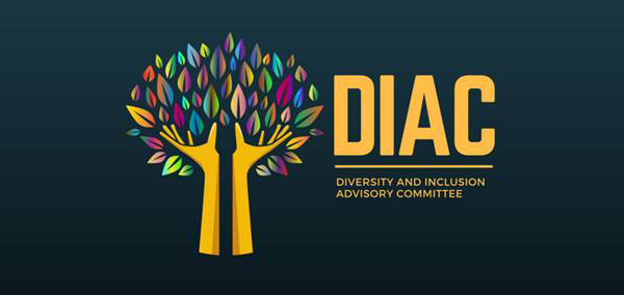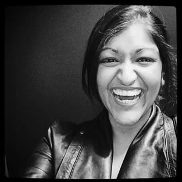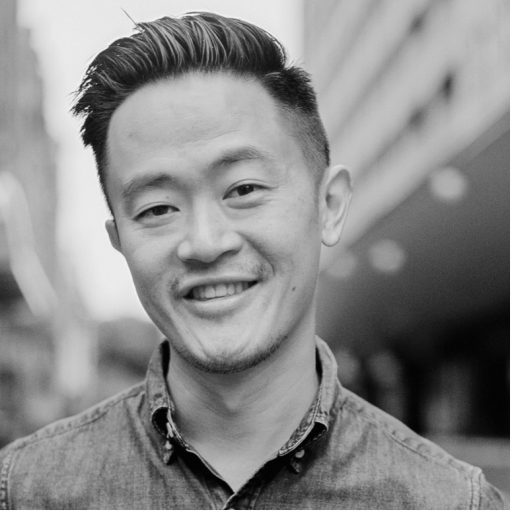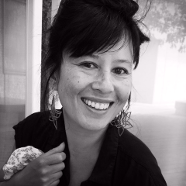
The Committee is made up of six members of the Australian film, television and stage industry, who bring with them a wealth of talent, experience and expertise in screen and stage writing, and an understanding of how programs and initiatives may be created and improved to help promote diversity and inclusion in the industry.
The Committee is: Niki Aken, Kodie Bedford, Jaime Browne, Mithila Gupta, Benjamin Law, and Marisa Nathar.
In consultation with the Committee, the AWG’s Diversity Program is committed to a series of partnerships, opportunities and events aimed at fostering inclusion and equal opportunity in the industry.
Recent Activities
First Break
Following the success of our initial note-taker workshops, in 2022 AWG launched First Break, a unique professional development program designed to give talented, aspiring screenwriters the opportunity to gain in-demand and practical skills, develop their understanding of the industry, and build industry connections.
First Break is designed to provide participants with the skills, training and understanding to obtain work as a note-taker or script coordinator, get their start in the industry and build vital networks. At the conclusion of First Break, participants are promoted to industry via the Pathways First Break tab. Find out more about First Break here.
SBS Emerging Screenwriters’ Incubator
Working with some of Australia’s leading production companies, the SBS Emerging Screenwriters’ Incubator brought the industry together to contribute to greater diversity among Australian screenwriting talent, by providing significant work experience in drama production for 18 emerging writers from backgrounds and with lived experiences currently underrepresented in the sector. This included Aboriginal and Torres Strait Islander peoples; people who are from culturally and linguistically diverse backgrounds; those who are living with a disability; are female or trans/gender diverse; identify as LGBTQIA+; and people located in regional and remote areas.
Each year for the next three years, six successful candidates will be employed for 12 months in production companies around the country acclaimed for their delivery of Australian drama.
During their placement, they will develop ideas into treatments, work across a production company’s fiction slate of programming, participate in writers’ rooms, and work closely with development producers and others to increase their knowledge and further develop their skills.
The AWG assisted in the development of the employment contract, offered each participant 12 months AWG membership, contributed to the judging process and conducted a specific workshop for the finalists, Ask Me Anything – Rosehaven Edition featuring Celia Pacquola and Luke McGregor.
The AWG is a branded partner in this initiative.
Note-takers Workshops
In August 2018, the Diversity and Inclusion Advisory Committee partnered with Co-Curious to run a Note-taking Workshop to train emerging writers in the skilful art of note-taking. Run by highly experienced and accomplished AWG Full Members Niki Aken, Michael Drake and Mithila Gupta, the masterclass included a practical exercise with a mock writers’ room, with individual feedback provided to the participants on their ‘notes’, and a final master set of notes developed by the group. Following the success of the first workshop, a second workshop ran in October 2019 in Melbourne, facilitated by Niki Aken, Michael Lucas and Marisa Nathar. Find the full list of note-takers here and here. In July 2020, Note-takers’ Workshops were run for WA and SA-based writers.
Since then, note-taking and script coordinating workshops have continued to be rolled out around Australia (see First Break above for details). In 2024, AWG partnered with Arts & Cultural Exchange (ACE) in NSW to deliver three sessions as part of their Screen trades program.
Past Activities
MEAA Equity Diversity Showcase
Built to develop and nurture career paths for writers, directors and performers from diverse backgrounds, the Equity Diversity Showcase is a program consisting of workshops, discussions, and professional development opportunities, culminating in a performance showcasing the developed work to an audience of network executives, managers, and other industry professionals.
The AWG took part in this multi-partner screen industry initiative in 2018 and took part again in 2021, albeit in a reduced capacity.
Focus on Ability Film Festival
The Focus on Ability Film Festival, presented by Nova Employment, asked film makers to ‘Focus on the Ability’ of people with a disability and tell a story on film for the world to view. Since 2018, AWG has sponsored the Official Selection Best Australian Screenplay for Short Film, and awarded the winning writer a 12-month AWG membership, a place on AWG’s Pathways Program, and a 12-month mentorship with an AWG full member.
AFTRS Talent Camp
AFTRS Talent Camp is a multi-partner screen industry initiative which aims to increase diversity and inclusion in the screen industries by providing career enhancement opportunities to talented storytellers from diverse backgrounds.
Between 2018 and 2021, the Australian Writers’ Guild and Scripted Ink. were major partners on the program, with Scripted Ink investing $50,000 and AWG providing practical support through industrial sessions in each state, 12 months’ AWG membership and entry to the celebrated Pathways program for National Talent Camp participants, and opportunities to participate in the AWG’s Spotlight on Emerging Talent networking event.
AWG’s Professional Development Manager Susie Hamilton also conducted sessions for Talent Camp participants in each state, discussing Scripted Ink., Pathways and AWG services and opportunities.
Spotlight On Emerging Talent Salon 2018
The Diversity and Inclusion Advisory Committee in conjunction with AWG Pathways held the inaugural Spotlight on Emerging Talent Salon at ICE on Tuesday 11 December 2018. This event was designed to showcase and introduce emerging screenwriters to industry.
Micro-mentorships took place prior to the event, which were hosted by full members Benjamin Law and Mithila Gupta and the night featured a ‘Fast & Furious’ interactive pitching session.
The evening featured over 30 of the newest members of the Pathways program including many of the writers inducted via our Diversity partnerships during the year.
Screen producers, production company representatives, television executives, agents, managers and directors were invited to be part of this unique industry event.
Prior to the salon event, approximately 15 members of the AWG including members of DIAC attended bespoke mentoring training run through Diversity Arts Australia. This was a two-hour session, and participants were provided with resources and templates to take home.
Equity Diversity Showcase 2018
Built to develop and nurture career paths for writers, directors and performers from diverse backgrounds, the Equity Diversity Showcase was a six-day program consisting of morning workshops, discussions, and professional development opportunities, culminating in a performance showcasing the developed work to an audience of network executives, managers and other industry professionals. A maximum of five writers were selected to participate in the program, with applicants assessed by an industry panel of diverse full members of the Australian Writers’ Guild. Following the program, the successful writers were given the opportunity to be mentored by a leading Australian screenwriter for 12 months, and were included on Australian Writers’ Guild’s prestigious Pathways Program. They were also given a one-year membership of the Australian Writers’ Guild.
National Talent Camp 2018
National Talent Camp is an AFTRS-led diversity and inclusion project designed to provide skills development opportunities to emerging storytellers and screen content creatives from diverse backgrounds. In 2017, Talent Camp workshops ran for five consecutive days in each capital city, with 12-15 participants each, with a focus on story development, producing considerations and career pathways. The top 16 candidates from camps around the country (2 from each state) attended a further week-long workshop in Sydney during May 2018.
As part of the Australian Writers’ Guild’s support of National Talent Camp, the 16 Talent Campers from May 2018 were offered a free AWG membership for one year and a place on the Pathways Program for one year. As a member of the Pathways Program, Talent Campers will be eligible to attend exclusive Pathways events, workshops and networking opportunities throughout the year. They are also able to submit a project for assessment for Pathways Showcase.
CuriousWorks Behind Closed Doors collaboration
Behind Closed Doors, run by CuriousWorks and supported by Screen Australia’s Enterprise Ideas Program, introduces fresh voices and untold stories to the screen sector. The innovative program connects emerging and exciting storytellers in Western Sydney with some of the industry’s most experienced creative talent. AWG partnered with CuriousWorks to offer AWG membership to successful Behind Closed Doors applicants, as well as a place on AWG’s Pathways Program and a micro-mentorship with a writer of their choosing. AWG and CuriousWorks also run an industrial session for Behind Closed Doors writers, and a note-taking workshop.
AWG Diversity and Inclusion Advisory Committee:

Niki Aken
Niki Aken is a multi-award-winning writer working across comedy and drama. Niki has written on all three seasons of the popular and critically acclaimed ABC series The Newsreader, which won the 2021 AACTA for Best Drama Series. She co-wrote SBS’ The Hunting, which was the highest-rating commissioned drama in SBS history, and wrote an episode and served as script producer on both seasons of the critically acclaimed comedy-drama series Upright (Foxtel/Sky UK). Niki was a Co-EP and development Script Producer on the SBS anthology series Erotic Stories, which debuted at SXSW Sydney. Her other credits include ABC’s Significant Others, ANZAC Girls, which won an AWGIE for Best Adapted Miniseries, and also multiple series of both Janet King. For her work on Nine Network’s Underbelly, Niki and the writing team won two AWGIES for Best Adapted Miniseries.

Kodie Bedford
Kodie was born in Western Australia, with strong family ties to the East Kimberley. Working mostly in television, Kodie’s credits include Mystery Road (ABC), Squinters (ABC) and Grace Beside Me (NITV/ABC). She made her directorial debut with a short horror film, Scout. Kodie received the Balnaves Fellowship for 2019 to develop her own play with Belvoir Theatre, Cursed! which was staged for the Belvoir Theatre 2020 season. Most recently, Kodie co-wrote and script produced ABC Iview series All My Friends are Racist which was nominated for Best Short Form Comedy for the 2021 AACTA awards and she also script produced and wrote for Warwick Thornton’s vampire show Firebite for AMC+.

Jaime Browne
Jaime Browne has been hailed by the Hollywood Reporter as “one of the most intriguing and exciting writers to emerge from Australia”, he is also one of its most prolific. His feature projects include the Australian Drama The Mule, the first Australian film to top the International iTunes charts – the new “spiritual” sequel Room 116, released this summer 2018 and the “best film of the 2018 SXSW Festival” Brother’s Nest. Jaime has generated and worked on award-winning projects such as the telemovie on the life of Graham Kennedy The King, the Emmy nominated Please Like Me, the primetime action drama The Straits, the award-winning comedy Laid, ABC miniseries event Devils Dust, 7 Network crime drama Killing Time and new Network 10 drama Over The Line.

Mithila Gupta
Mithila Gupta is an Indian-born, Aussie-bred screenwriter based in Sydney. She started her screenwriting career in the story room at Neighbours in 2010 – where she introduced an Indian family to the regular cast of Ramsay Street. She went on to script edit and write for the show. She has since written on Winners and Losers, Home and Away, Trip for Biscuits, This is Shyness and Toybox. She was also the assistant script editor on Cleverman. Mithila recently wrote the pilot for Aquarius Films’ The Unlisted, which has been green lit by the ABC to go into production in 2018. Mithila will write 3 episodes as well as work as the Cultural Writer across the series. She’s also writing on Screentime’s drama Playing For Keeps for Ten, along with several episodes of television in development with Matchbox Pictures, Beyond Productions and Sticky Pictures. Mithila has her own comedy series (co-created with Majhid Heath) Spousemates, in development with Sticky Pictures. Her other baby is her debut feature film Salsa Masala which she’s developing with producer Leanne Tonkes. Salsa Masala gained Mithila entry into Film Victoria’s Catapult Concept Lab in 2012 and has since received development funding from Film Victoria and Screen Australia. Both of these projects have a strong and joyful focus on cultural diversity – something Mithila is extremely passionate about.

Benjamin Law
Benjamin Law writes books, TV screenplays, columns, essays and features. He’s the author of the memoir The Family Law (2010), the travel book Gaysia: Adventures in the Queer East (2012)—both nominated for Australian Book Industry Awards—and the Quarterly Essay on Safe Schools, Moral Panic 101 (2017). He’s the co-author of Shit Asian Mothers Say (2014) with his sister Michelle, and the sex/relationships advice book Law School (2017) with his mum Jenny. Benjamin has written for over 50 publications in Australia and beyond—including the Monthly, frankie, Good Weekend, the Guardian, the Australian, Monocle and the Australian Financial Review—and has a PhD in creative writing from QUT. The Family Law is now also an award-winning TV series for SBS, which Benjamin created and co-writes. Benjamin was also a researcher and associate producer on Blackfella Films’ Deep Water: The Real Story (SBS) and a writer on Endemol Shine’s Sisters (Ten). You can hear him co-hosting ABC RN’s weekly pop culture show Stop Everything, and watch him as a panellist on TV shows like ABC’s Screen Time, Q&A and The Drum.

Marisa Nathar
Marisa Nathar is a screenwriter and children’s book author with an extensive background in film and television production. Formerly a location manager, Marisa then transitioned into Australia’s top television screenwriting departments (Party Tricks, Barracuda, Seven Types of Ambiguity) as a script coordinator, researcher and in script development. In 2014, she teamed up with director Shannon Murphy writing digital content shorts for Party Tricks and then the director/writer team went on to make to make two short films: Pineapple Squat and Eaglehawk. Produced by Dollhouse Pictures, Eaglehawk was a finalist in the Dendy Short Film Awards at Sydney Film Festival 2016 and has screened at numerous local and international film festivals including MIFF, St Kilda Film Festival, Flickerfest, Cinefest Oz, Provincetown International Film Festival, Aesthetica (UK) and FilmForum (Poland). Marisa has been awarded two writers’ placements through Film Victoria – The Listies’ Teleportaloo) and with Matchbox Pictures on Mustangs FC (series 2) – and has participated in a wide range of television brainstorming and story rooms. Currently, Marisa is developing original drama series Carmenta with co-creator/writer Holly Alexander which received development funding from Film Victoria. She is also writing for Mustangs FC (series 3) produced by Matchbox Pictures for ABC ME and NITV as well as developing several projects for television.
Testimonials
‘It’s such an important initiative that we now have the AWG and the Diversity and Inclusion Advisory Committee to advise, guide, advocate and assist writers and their stories find their way in to the mainstream of Australian film, theatre and TV. Also advocacy for dialogue with industry on their behalf to ensure these stories are not only supported but realised. I am from sectors where Indigenous storytelling has seen supported over the last decade thru affirmative actions and this has seen amazing results. I personally tell a lot of my stories from a Indigenous woman’s POV, a much under represented demographic. So I totally relate to what the AWG and the DIAC committee’s aims and objectives are and I fully support such an initiative.’ — Leah Purcell
‘From my experience, the people most invested in representing a true and diverse reflection of Australian society are writers from diverse backgrounds themselves because it’s not just a political cause, it’s a personal imperative. So to genuinely change screen culture, we need to change our writers rooms.’ — Tony Ayres
‘An AWG program that fosters diversity is imperative because we underestimate how much we rely on art to learn from each other. Minority groups become interwoven into the mainstream identity, which is a much more honest reflection of Australian stories. Also, having writers with different identities avoids any inaccurate representation of a particular community, which in turn they have to live with’ — Miranda Tapsell
‘Australia has always been a big country full of stories. An AWG program like this is important because it supports new storytellers that represent vital voices, fresh perspectives and diverse tales of Australia that are often not heard.’ — Lawrence Leung
‘We need AWG’s diversity and inclusion advisory committee so young minorities can hear stories that they relate to, and so that actors with a non-anglo, Indigenous, LGBTIQ background, and/or actors with disabilities, can finally be represented on our stages and screens, in LEAD roles instead of ‘Bus Passenger 3’…’ — Matt Okine
‘The lack of diversity in our national storytelling is one of the most pressing cultural issues for our society. The dissonance between the amazing diversity of our people and its lack on our screens, stages and media has the potential to alienate and splinter us as a country. Our national storytelling has to catch up with the diversity of our streets’ — Wesley Enoch
AWG program that fosters diversity in Australian TV writers’ rooms and theatres is important because authenticity in storytelling resonates and the only way to get authenticity is to actually get it from the people whose story you are trying to tell.’ — Ronny Chieng

